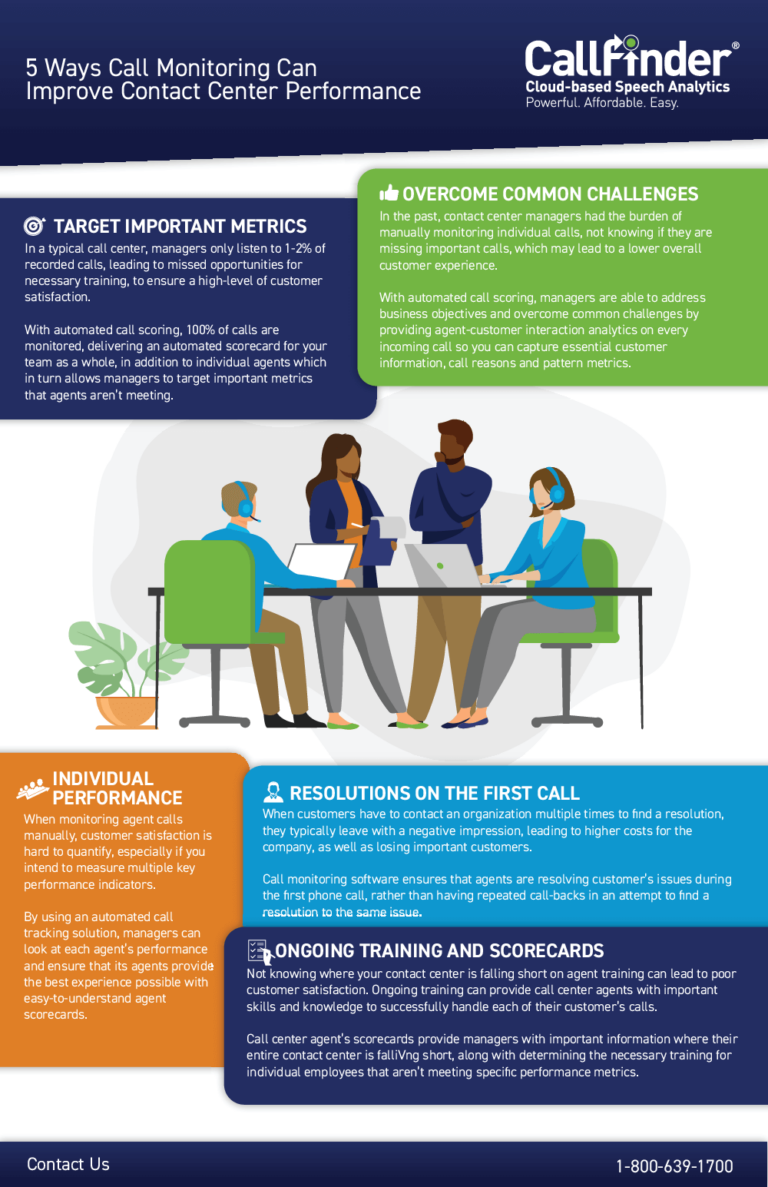When evaluating agent performance, it is ineffective to focus on metrics that are outside of their control. Service level tanked last month? There are a number of reasons that could have happened—spike in volume, vacant seats, too much outage approved by the supervisor–none of which the agent had any power to effect.
Call center agents are measured very heavily and very precisely. For very few other jobs does the employer know exactly when the employee started and ended being productive each workday. Reports will show how long each interaction took from start to finish, including talk time, hold time, and after-call work. This data, in isolation and in inexperienced hands, can lead to a misplaced focus.
Here are a few things that are both within the agent’s control and essential to the caller experience:
- Call quality coupled with call control. For the obvious cost reasons, call center senior management often lasers in on call length; with the bias of shorter being better. But what the caller asks and whether they ask it in an organized or scattered fashion is something the agent can’t control. A talented agent is able to answer each question (asked and implied) accurately and thoroughly, and in a friendly manner–without veering off into unnecessary tangents.
- Schedule adherence. Defined as very little unplanned absence, arriving on time, returning from breaks and lunch as scheduled, staying logged in (and available) until the end of their shift. What is not emphasized enough by supervisors is the impact that schedule non-adherence has on teammates (more work for them). This impact should be pointed out, with data; it will resonate more than discussions on service levels and abandoned rates.
- Offering suggestions. Everyone wants to feel as if they are making a difference in the workplace. Call Center management should create a culture of idea-sharing and weave the quantity and quality of those suggestions, and their outcomes, into the agent evaluation process.
Agents will (rightly) tune out feedback that is disconnected from the call-by-call realities of their job and from what they can control. Supervisors and higher-level management must keep this in mind as they think about how to evaluate agent performance.
Visit our website here. To contact us and save a click: contact us.




